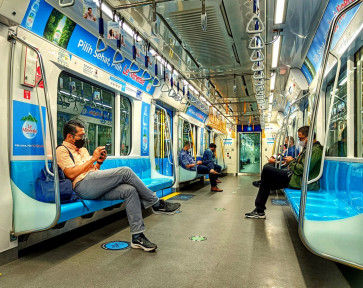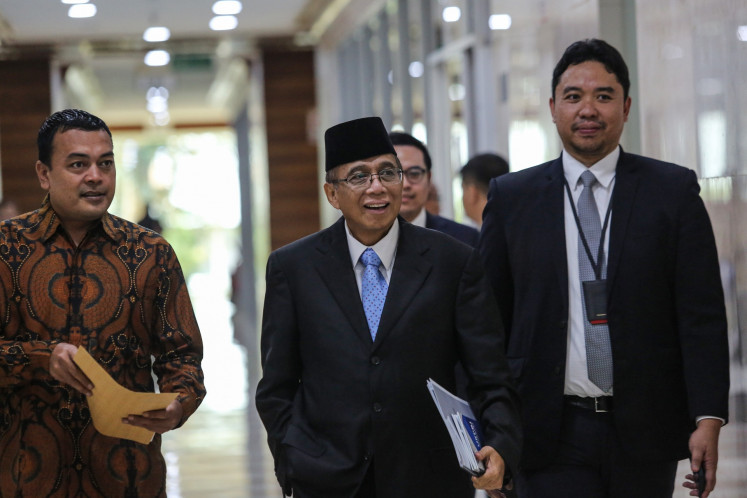Popular Reads
Top Results
Can't find what you're looking for?
View all search resultsPopular Reads
Top Results
Can't find what you're looking for?
View all search resultsIPR looms as next problem at WTO negotiations
Intellectual property rights (IPR) will stir up new problems for global and regional trade as IPR protections are expected to get tougher, experts say
Change text size
Gift Premium Articles
to Anyone
I
ntellectual property rights (IPR) will stir up new problems for global and regional trade as IPR protections are expected to get tougher, experts say.
The IPR has been one of the most complicated issues discussed at the World Trade Organization (WTO) and regional trade agreement (RTA) levels, according to Djisman Simandjuntak, a senior economist of the Jakarta-based think-tank, the Centre for Strategic and International Studies (CSIS).
'There is a general tendency toward stronger IPR among developed countries, especially the US,' he said on Wednesday.
'It is still the leader in many sectors, but it has lost some of its competitiveness and it wants a somewhat fairer return from its IPR.'
In a leaked draft text of the IPR chapter of the Trans-Pacific Partnership (TPP) agreement, the US, along with Australia and several other countries, are reported to be seeking extensions to copyright terms, to 70 years after the death of the copyright owner.
That is beyond the international standards of life plus 50 years, such as that contained within the WTO's Trade-Related Aspects of Intellectual Property Rights (TRIPS) agreement. The period may be extended even further if the terms involve published works, whose copyrights are owned by companies.
The TPP is a multilateral trade cooperation forum, which began taking shape in 2010. Its members comprise Australia, Brunei Darussalam, Canada, Chile, Japan, Malaysia, Mexico, New Zealand, Peru, Singapore, the US and Vietnam.
Meanwhile, the TRIPS agreement came into effect in 1995 and covers seven areas of intellectual property; copyright and related rights, trademarks, geographical indications, industrial designs, patents, layout designs of integrated circuits and undisclosed information.
The WTO has so far recorded at least 10 cases of copyright and related rights disputes. The US has filed eight of the 10 cases. Besides copyright, the same problems had also arisen in terms of patents, Djisman noted.
At the moment, article 33 of the TRIPS agreement stipulates that the term of patent protection available 'shall not end before the expiration of a period of 20 years counted from the filing date'.
However, while developed countries wanted their rights to last longer, the life cycle of new technologies had got shorter, Djisman said.
'As a result, developing countries will face higher costs to access the new technologies and have less prospect of being able to evolve,' he added.
Concurring with Djisman, Asian Development Bank Institute (ADBI) research director Ganeshan Wignaraja said that strict protection could potentially hinder a country's industrialization, whereas some countries had been able to grow on 'borrowed technology'.
'If countries want to industrialize, you have to allow for a certain amount of open access to technology, but it is a tricky issue because we do have to give investors something for inventing,' he said.
Separately, Pro Humano Genero, an Ecuadorian organization, is planning to propose an amendment to article 33 of TRIPS to provide 'equality' among WTO members.
Pro Humano Genero president Esteban Donoso said that patent protections should be adjusted to each country's development level because the costs grew higher as the periods got longer.
'A country like Sierra Leone, whose income per capita stands at around US$8,000 per year, will find it more difficult to afford the protection for 20 years compared to Canada, whose income amounts to around $30,000 per year,' he told The Jakarta Post.
Pro Humano Genero suggests that the time length be reduced to less than 20 years for developing and least developed countries.










